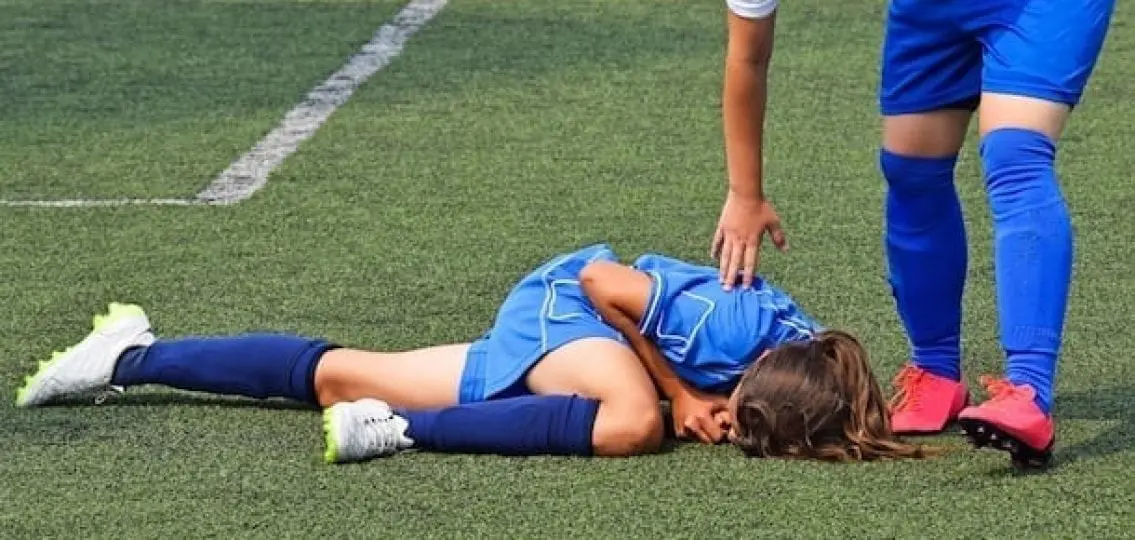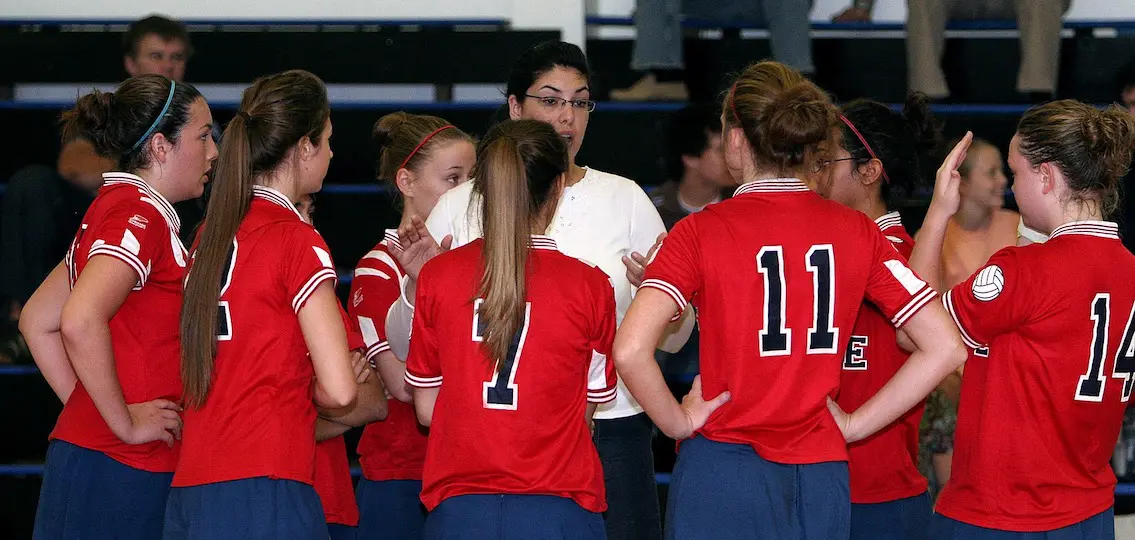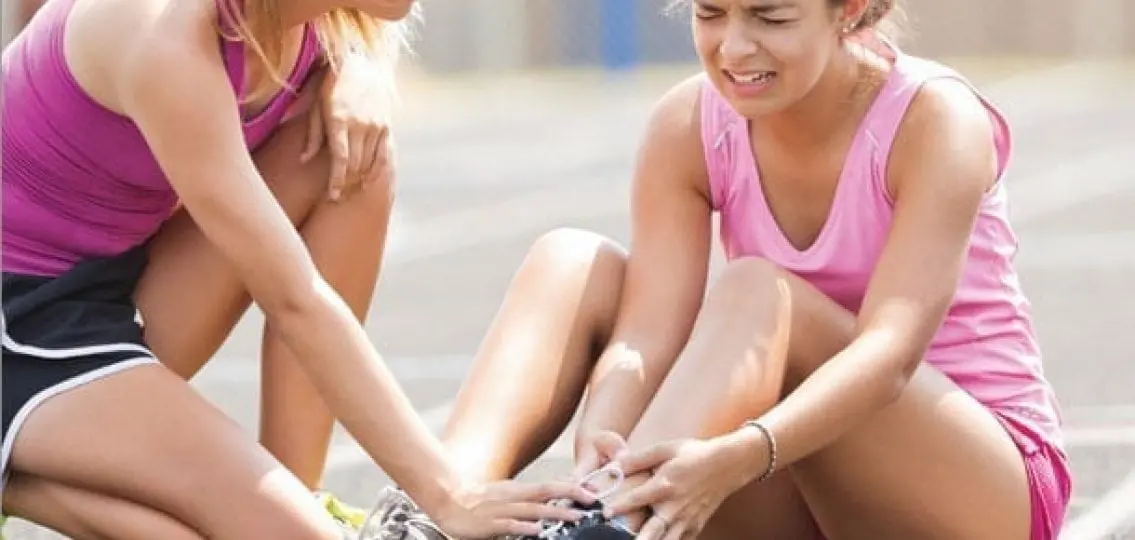In today’s world of highly competitive sports, our teens are pushing the limits of their bodies in order to improve performance. When an athlete is sidelined by a sports injury, everyone feels the pain. Your Teen discussed the topic of high school sports injuries with Dr. Mary Solomon, pediatric sports medicine specialist at University Hospitals Rainbow Babies & Children’s Hospital.

Q: What are the most common sports injuries in teens and tweens?
Solomon: Probably ankle sprains. While muscle strains throughout the body are very common, ankle sprains top the list. However, concussions are also prevalent.
Q: Are concussions more common in football?
Solomon: All collision sports have higher incidence of concussions. For boys, football, lacrosse, wrestling and ice hockey have increased risk. The number of concussions among girls’ soccer and basketball continues to rise.
Q: Are there trends that worry you?
Solomon: Yes—the trend to specialize sports at young ages, even six and seven. To play that same sport continuously throughout the year, without breaks, introduces the potential for overuse injuries. We’re definitely seeing escalations of overuse injuries. Specialization shifts the focus away from fun and healthy activity to achieving certain markers or statistics. We should encourage kids to have fun.
Q: What’s your recommendation?
Solomon: The American Academy of Pediatrics encourages a break of at least one to two days off a week and one to two months a year if you’re going to specialize. For example, on days off, a pitcher would do something that doesn’t use his upper extremities or the pitching motion.
Q: The coach has so much power. What can a parent do?
Solomon: First and foremost, it’s a parent’s responsibility to advocate for their children. Parents need to be willing to stay firm to their values. If the coach is unreasonable, take a step back and ask yourself, “Why?” Why is my child doing this? Is this fun? Is this developing a healthy sense of self? Is it promoting good health? The adolescent should have fun in sports, do well in school, and enjoy time with friends. If these goals are not met, parents should reconsider motivations to participate in school sports. When there’s an injury, you should see a doctor. The doctor’s advice should trump the coach’s opinion.
Q: How can a parent distinguish between an ache that will heal on its own versus an injury that requires a visit to the doctor?
Solomon: An athlete should see a doctor when pain doesn’t resolve with rest and ice. When less activity continues to causes pain, it’s time to make an appointment. Pain when an athlete places weight on their legs, pain with use of hands or shoulders, and nagging points that re-present are symptoms that should not be ignored.
Q: What if you don’t agree with the diagnosis?
Solomon: Trust your gut. If you still have questions or doubts, even after an evaluation by a doctor, an athletic trainer, or the ER, pursue further medical attention. I think it’s better to be conservative and thorough.
Q: What is your opinion on sports drinks? Vitamin Water? Gatorade?
Solomon: With the obesity epidemic, eliminating sports drinks is a good way to decrease calorie intake. If your activity level is high—breaking a sweat for more than 90 minutes—then it’s a good idea to introduce a sports drink with carbohydrates.
Q: Can there be too much exercise?
Solomon: Follow the “Ten Percent” rule. Increase activity by ten percent. If they run ten minutes, increase to eleven minutes next week. If they run 20 miles a week, run 22 miles next week. Basically, gradual increases over time. Those are some easy numbers to remember to improve fitness.
Q: Do you worry about long distance runners?
Solomon: I would consider grades, social life, and mood. If the teen is happy, engaged with friends other than running mates and interested in a variety of activities, then it’s a safe activity.
Q: What are your thoughts on weight training?
Solomon: Weight training helps develop healthy bones. It attends to a variety of muscle groups. Strength training introduces other activities to improve muscles that otherwise are ignored, especially for those athletes who play one or two sports year-round.
Q: Maxing out?
Solomon: I think it’s idiocy, I really do. It’s a sure road to seeing the doctor because it induces strains and sprains. Teens have open growth plates and are at increased risk for avulsion fractures, especially if they practice maxing out. This injury causes the muscle to pull off the growth plate from the bone and can keep the teen out of their sport for six weeks or more. We encourage kids not to max out at all. We shouldn’t encourage children, especially before puberty, to weight train only for physique or status. Weight training can be safe if it’s done with high repetition and low weight.
Q: Do you see much steroid use?
Solomon: It’s there, but steroid use is not easily detected. Athletes are less likely to report it because they know it’s not acceptable. But, it’s available in community gyms, at schools, through coaches and trainers and even parents sometimes will introduce it to their kids. College scholarships, scouting opportunities, and performance are pressures which may encourage steroid use. Warning signs of steroid use include bouts of anger, stretch marks, and acne.
Q: Do steroids contribute to injuries?
Solomon: I think the biggest worry is that a teen who feels pressure to use steroids might also engage in other high-risk behaviors to obtain a goal or be accepted.
Q: What if coaches aren’t looking out for our kids?
Solomon: For the most part, I think it’s good for people of all ages to be involved in sports. But, there’s the temptation to succumb to other pressures, and parents should advocate for their children, keep coaches in check and keep an eye on the other people involved. Maintain open conversations with your teen. Talk about what it’s like to be an athlete for a coach and what it’s like to be on a team. Take time to talk to your kids; let them know that you are interested in them. Tell them that they can come to you with their worries or questions. Teens need their parents to repeat this message.

Q: What is your final advice to parents?
Solomon: Take time to listen to your child. Our kids have pressure to participate in all types of activities—travel teams, school activities, work obligations—but the most important thing is that dinner table conversation at home or conversation before bed at night. Give your kids the chance to talk with you about their pressures, injuries, or worries with sports, school, or future goals.




